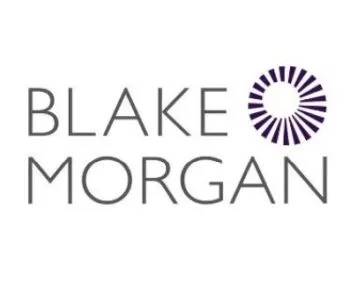Now that the transition period has ended and we have officially exited the European Union, we revisit the subject of intellectual property and the impact Brexit has had on your intellectual property rights.
COPYRIGHT
The UK is a member of a number of international treaties, and agreements, protecting copyright. These have largely been unaffected by the UK's exit from the EU with the majority of UK copyright works still being protected around the world, including in the EU, and works originating in the EU (but not from the UK) are still protected in the UK.
Where we have seen changes is in respect of certain cross-border copyright mechanisms which no longer apply in the same way as they were originally intended. For example the EU Portability Regulation which allowed consumers to access online content services (for example Netflix) when they were travelling have ceased to apply and thus UK consumers travelling to the EU may find they can no longer access such services whilst abroad.
DESIGNS
Whilst UK registered and unregistered designs remain unchanged the same cannot be said for Registered Community Designs ("RCD") and Unregistered Community Designs ("UCD").
The owners of RCD's have automatically been granted a new equivalent UK right at no cost. The RCD itself continues to protect the owner in the remaining 27 Member States of the EU. The RCD, and resulting equivalent UK right, will now be treated entirely separately for the purposes of renewal, validity etc.
Businesses that had pending RCD applications at the end of the Transition Period have nine months from the end of the Transition Period to file an equivalent UK application based on the RCD and in accordance with the UK's standard fee structure.
UCD's provide businesses with automatic protection for certain designs (including the likes of clothing designs and patterns). Following Britain's exit from the EU businesses are no longer afforded UCD's for new designs and, instead, need to fall back on UK unregistered designs. However, UK unregistered designs are not the same as UCD's. Accordingly the UK Government have confirmed that, where certain types of rights are not permitted to be protected as UK unregistered designs under existing legislation, then new schemes will be established to ensure that UCD's are protected in the UK.
Review where you use your trade marks, if you only use your European Union trade mark (EUTM) in the UK then consider extending use into the other 27 Member States or otherwise surrendering the EUTM and maintaining only the UK mark.
PATENTS
Patents have largely been unaffected by Brexit. The European Patent Convention is not related to the EU, European patents continue to cover the EU and European patent attorneys based in the UK continue to be able to represent applicants before the EPO.
TRADE MARKS
At the end of the Transition Period, owners of existing registered, European Union trade marks (EUTMs) were granted a new equivalent UK right. It was an automatic process, but rights holders had the option to opt-out if for any reason they did not want a UK registration.
The resulting UK registrations are subject to renewal in the UK, can form the basis for proceedings in the UK, can be challenged for invalidity/non-use in the UK and can be assigned and licensed independent from the EUTM from which it originated.
Perhaps the biggest impact will have been felt by the holders of EUTM applications that were pending at the end of the Transition Period. Such applicants were not automatically granted an equivalent UK application and, instead, the applicants have a period of nine months from the end of the Transition Period to file an equivalent UK application which will benefit from the same filing/priority/seniority date as the EUTM from which it originated. Importantly however the holder will need to pay for this new UK application.
International Registrations ("IR"), designating the EU, have essentially been dealt with in the same way as EUTMs i.e. owners of such IR's have automatically been granted an equivalent UK right or, if the application was pending, the applicant has a nine month period within which to file an equivalent UK application.
ENFORCEMENT
Before Brexit the owners of EU intellectual property rights (for example EU trade marks, Registered Community Designs and/or copyright) could seek to enforce their rights by bringing proceedings in one Member State but obtain pan-EU relief. So, for example, the owner of an EU trade mark could bring infringement proceedings in a UK court seeking an injunction preventing the defendant from using an infringing mark anywhere in the EU.
Following Britain's exit from the EU, UK courts no longer have jurisdiction over infringements occurring outside of the UK and thus are not able to grant relief in respect of infringements outside of the UK. Equally owners of both EU and UK intellectual property rights need to bring separate proceedings in both the UK and an EU Member State if they seek relief across the EU and in the UK.
REPRESENTATION
Now the UK has left the EU, UK based representatives are no longer able to directly represent clients before the EUIPO. This means that they are no longer able to file, or renew, EU trade marks or RCDs. However, Blake Morgan can continue to advise clients in respect of the entirety of their portfolios and have a solution in place whereby we work with our trusted agents within the EU to deal with the filings and formal representation requirements thus ensuring consistency and continuity for you.
Similarly, all new applications or requests to start contentious proceedings before the UK IPO will now only be accepted if they have an address for service in the UK or Channel Islands. This is a change to the pre-Brexit requirements that allowed an address for service in the EEA. This change applies to all registered intellectual property rights, meaning that patents, trade marks and registered designs have all been effected. The change in address for service requirements means that a number of intellectual property rights holders may now need to find an additional or alternative representative to represent them directly before the UK IPO. However, the Government has confirmed that a UK address for service is not required for the renewal of registered or granted rights.
ACTION
In light of the changes that have come into place since Britain left the EU, we would suggest that you consider the following:
- If filing new trade mark or design applications, then consider filing both UK and EU applications simultaneously;
- Review where you use your trade marks, if you only use your EUTM in the UK then consider extending use into the other 27 Member States or otherwise surrendering the EUTM and maintaining only the UK mark;
- If you only have a UK mark but use the mark in the other 27 Member States then consider filing an application for an EUTM;
- If you have licences/security interests recorded against an EUTM or RCD then consider whether you should record comparable interests against the new UK mark/design;
- Review any co-existence, distribution, licence, or similar, agreements to consider whether those agreements that define the EU as the territory need to be clarified to ensure that they have continued to apply to the UK after Brexit;
- Review any co-existence, settlement, or similar, agreements to ensure that the automatic granting of an UK mark has not put you in breach of contract; and
- If you are the owner of a UK intellectual property registration and do not currently have a representative based in the UK, consider appointing an additional or alternative represent to represent you directly before the UK IPO.
The content of this article is intended to provide a general guide to the subject matter. Specialist advice should be sought about your specific circumstances.


